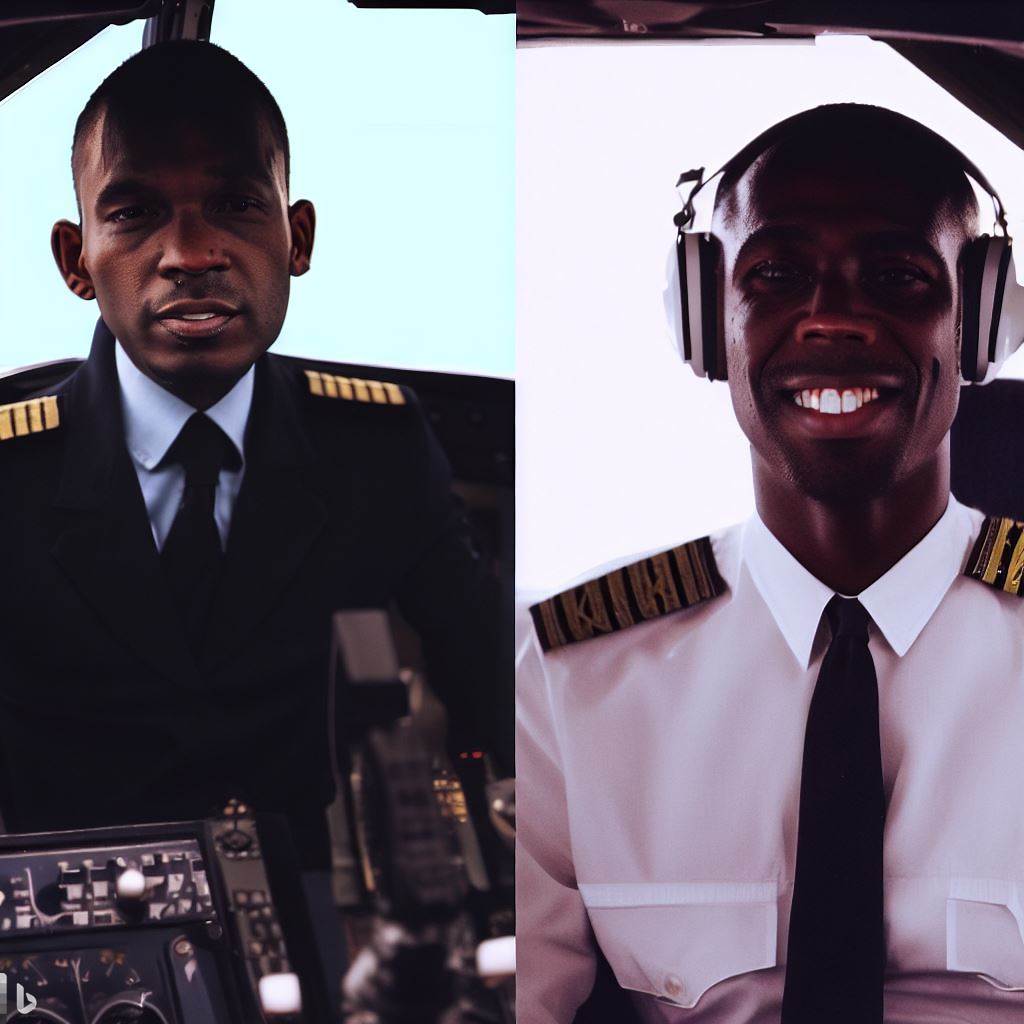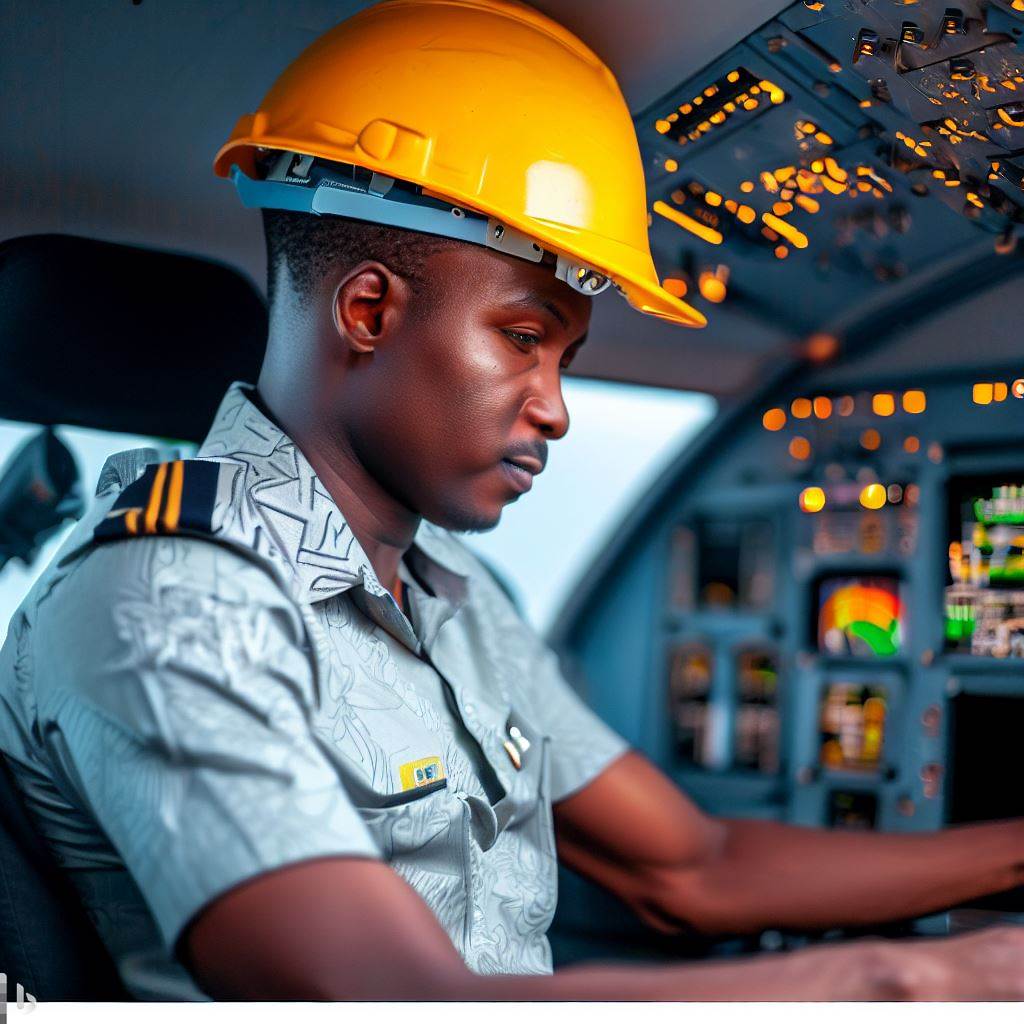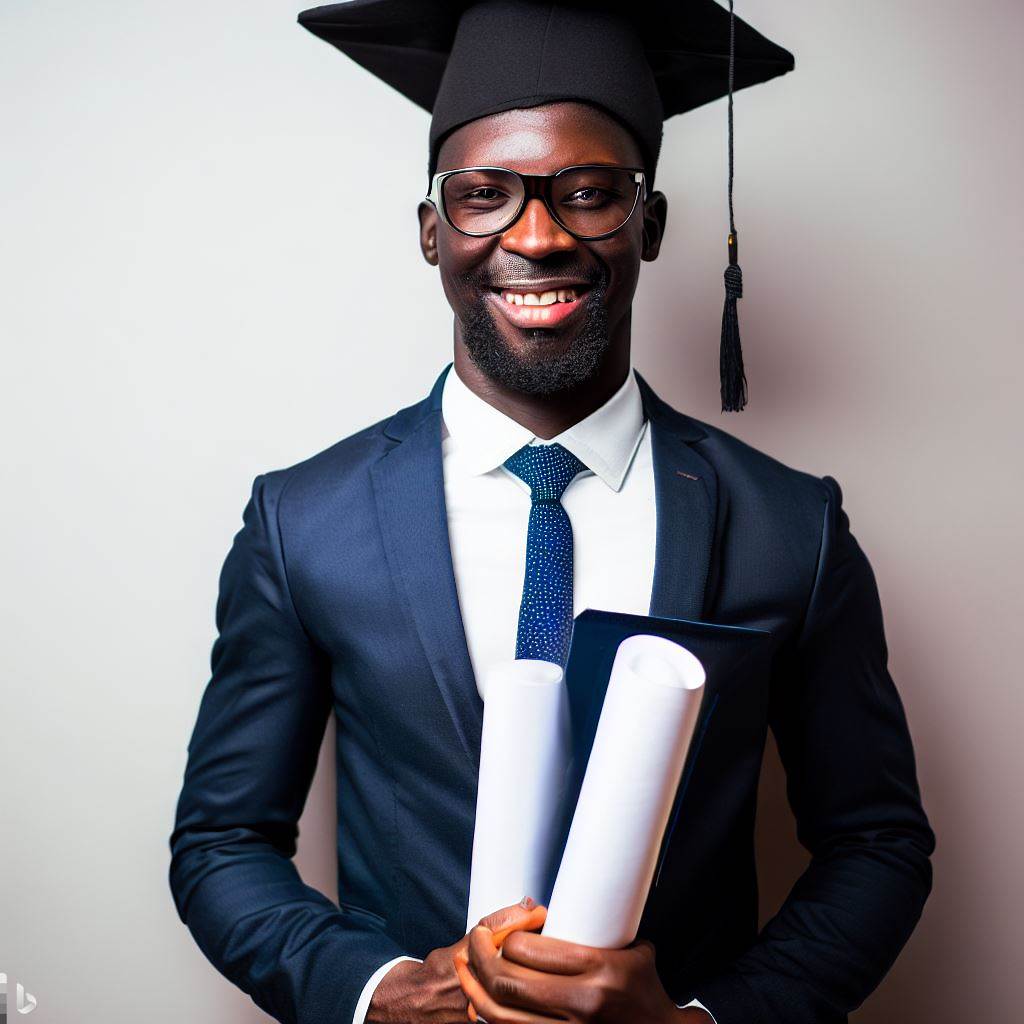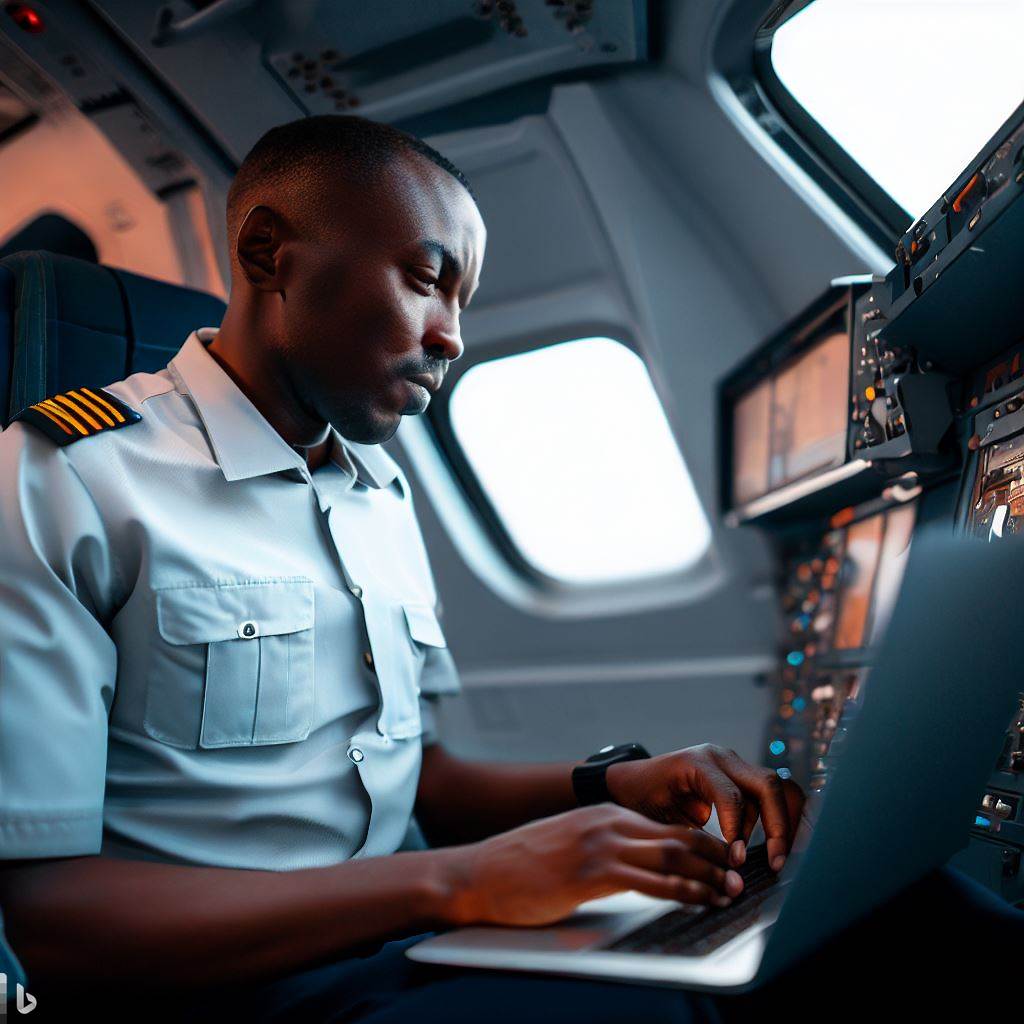Introduction
In professional fields, diversity and inclusion are of utmost importance for various reasons. Flight engineering in Nigeria is a significant sector that encompasses various roles and responsibilities.
Exploring the current state of diversity in the cockpit in Nigeria and its implications is the focus of this blog.
Diversity and inclusion are essential in professional fields, as it brings different perspectives and experiences, leading to innovative and creative solutions. In Nigeria, flight engineering involves the operation, maintenance, and design of aircraft and its systems.
Despite the advancements in the aviation industry, there remains a lack of diversity in the cockpit in Nigeria. This lack of diversity poses challenges in terms of representation, inclusivity, and equal opportunities.
Addressing the current state of diversity in the cockpit in Nigeria is crucial to promote equality and progress. Examining the implications of this lack of diversity could help identify the necessary steps for improvement.
All in all, understanding the importance of diversity and inclusion in professional fields, specifically in flight engineering in Nigeria, is crucial for achieving progress and development.
Historical background of flight engineering in Nigeria
Flight engineering in Nigeria has a rich and fascinating historical background that highlights the development and growth of the aviation industry in the country. Early pioneers and their notable achievements have shaped the path of flight engineering, even though there has been a lack of diversity and representation in the early stages.
Development and growth of aviation industry in Nigeria
The aviation industry in Nigeria has seen significant progress since its inception. It started with the establishment of Nigeria Airways in 1958, which became a major player in the African aviation scene.
The industry grew rapidly, leading to the construction of modern airports across the country.
Early pioneers and notable achievements by Nigerian flight engineers
Nigeria boasts several remarkable flight engineers who have made notable achievements in the field. One such pioneer is Akanu Ibiam, who trained as a dentist but also contributed significantly to aviation.
He played a crucial role in founding Nigeria’s first airline, West African Airways Corporation (WAAC).
Another noteworthy figure is Murtala Mohammed, who, as Air Vice Marshal, served as the head of Nigeria’s Air Force and later became the country’s Head of State. Under his leadership, the aviation industry witnessed considerable growth and development.
Lack of diversity and representation in the early stages
Despite the notable achievements by Nigerian flight engineers, there was a lack of diversity and representation in the early stages. This lack of diversity was primarily due to limited access to proper training and educational opportunities for individuals from marginalized communities.
The aviation industry, like many other fields, had limited opportunities for women in the early stages. Societal norms and cultural biases prevented women from pursuing careers as flight engineers, leading to a predominantly male-dominated industry.
In recent years, efforts have been made to address these disparities. The Nigerian government, in collaboration with various aviation bodies, has taken steps to encourage diversity and inclusivity in the cockpit. Programs and initiatives have been launched to provide equal opportunities for aspiring flight engineers regardless of their gender or background.
The historical background of flight engineering in Nigeria showcases the development and growth of the aviation industry. The contributions of early pioneers and their notable achievements have laid the foundation for the country’s flight engineering sector.
While there was a lack of diversity and representation in the early stages, efforts are now being made to ensure equal opportunities for all aspiring flight engineers in Nigeria.
Read: The Demand for Petroleum Engineers in Nigeria: A Deep Dive
Current state of diversity in the cockpit
Statistics and data on ethnic and gender diversity among flight engineers in Nigeria
The current state of diversity in the cockpit, specifically within the field of flight engineering in Nigeria, reveals some intriguing statistics. According to recent data, there is a lack of ethnic and gender diversity among flight engineers in the country.
The majority of flight engineers in Nigeria are male, with women being significantly underrepresented in this profession. Likewise, ethnic diversity is also a concern, as a large majority of flight engineers in Nigeria belong to a single ethnic group.
These statistics highlight the need for initiatives and actions to promote diversity and inclusion within the aviation industry in Nigeria. Greater representation from different ethnic groups and genders can bring fresh perspectives, ideas, and skills to the cockpit.
Challenges faced by underrepresented individuals in pursuing a career in flight engineering
Underrepresented individuals, particularly women and those from different ethnic backgrounds, face numerous challenges in pursuing a career in flight engineering in Nigeria.
Misconceptions and stereotypes surrounding gender roles and capabilities pose obstacles for women aspiring to become flight engineers. There is a lingering perception that aviation is a male-dominated field, detering women from pursuing this career path.
Individuals from different ethnic backgrounds may encounter cultural biases and limited opportunities due to nepotism or favoritism in the aviation industry.
Overcoming these challenges requires a concerted effort to create a more inclusive and supportive environment for underrepresented individuals. Encouraging mentorship programs, providing equal opportunities, and challenging traditional gender and ethnic biases is crucial in promoting diversity in flight engineering.
Efforts taken by Nigeria Civil Aviation Authority and other organizations to promote diversity
The Nigeria Civil Aviation Authority (NCAA) and various organizations within the aviation industry have recognized the importance of promoting diversity in the cockpit and taken steps to address this issue.
The NCAA has implemented policies that encourage equal opportunities and inclusivity within the aviation sector. They have established mentorship programs to support underrepresented individuals and foster their career growth.
Organizations like the Women in Aviation International (WAI) Nigeria Chapter have been actively involved in promoting gender diversity by organizing conferences, workshops, and mentorship initiatives for women in the aviation field.
Collectively, these efforts aim to increase representation, provide support networks, and challenge societal prejudices in order to build a more diverse and inclusive aviation industry in Nigeria.
In short, the current state of diversity in the cockpit, specifically in flight engineering in Nigeria, requires attention and action. Statistics show a lack of ethnic and gender diversity among flight engineers, highlighting the need for initiatives to promote inclusivity.
Underrepresented individuals face challenges due to misconceptions, biases, and limited opportunities. Efforts taken by the Nigeria Civil Aviation Authority and organizations like WAI Nigeria are crucial in promoting diversity and creating a more inclusive environment in the cockpit.
By embracing diversity, the aviation industry in Nigeria can benefit from the wealth of perspectives and talent that individuals from different backgrounds bring, ultimately leading to a more innovative and successful sector.
Read: Understanding the Role of Geoscientists in Nigeria’s Oil Industry

Benefits and Importance of Diversity in the Cockpit
When it comes to flight engineering in Nigeria, diversity in the cockpit plays a crucial role. It brings numerous benefits and holds immense importance for the aviation industry as a whole. Let’s explore some of these advantages:
Improved Decision Making and Problem-Solving Abilities
A diverse cockpit brings together individuals with different backgrounds, experiences, and perspectives. This diversity encourages a wide range of ideas and solutions when faced with complex situations or challenges.
Decision making becomes more comprehensive and considers various angles, ultimately leading to better outcomes.
Enhanced Safety and Efficiency
A diverse cockpit means a team comprised of professionals with diverse experiences and knowledge. This brings a wider range of expertise to the table, enabling better problem identification and quicker resolution.
Different perspectives help in identifying potential risks and finding efficient methods to mitigate them, ultimately enhancing safety and efficiency in flight operations.
Positive Impact on Public Perception, Customer Satisfaction, and Global Representation
With increasing globalization and connectivity, the aviation industry must reflect the diversity of the world it serves. A diverse cockpit fosters a positive public perception by showcasing inclusivity, fairness, and equal opportunities.
Passengers from various backgrounds feel represented, respected, and confident in the airline’s ability to cater to their needs. This leads to higher customer satisfaction and loyalty.
A diverse aviation workforce is essential for global representation. As Nigeria continues to serve as a hub for international travel, having flight engineers from diverse backgrounds on board creates a welcoming environment for passengers from various countries.
It promotes cultural exchange, breaks down barriers, and strengthens international relations.
In essence, diversity in the cockpit brings several benefits and holds great importance in flight engineering. It improves decision making, problem-solving abilities, safety, and efficiency.
Also, it positively impacts public perception, customer satisfaction, and global representation. Embracing diversity in the aviation industry is not only the right ethical choice but also a strategic advantage that contributes to the overall success of the industry.
Read: Exploring the Top Paying Oil and Gas Professions in Nigeria
Possible Solutions to Increase Diversity in Flight Engineering in Nigeria
Encouraging early interest in aviation among underrepresented groups
- Introduce aviation-related activities in schools to spark curiosity among students.
- Organize field trips to airports and aviation events to expose young individuals to the industry.
- Create aviation clubs or societies that provide mentorship and support for underrepresented students.
Expanding scholarship programs and mentorship opportunities for aspiring flight engineers
- Establish partnerships between aviation companies and educational institutions to provide scholarships.
- Create mentorship programs where experienced flight engineers guide and inspire aspiring individuals.
- Offer financial aid packages that cover tuition fees and living expenses for deserving students.
Promoting inclusive recruitment practices and eliminating bias in the selection process
- Implement blind screening processes to remove unconscious biases during resume evaluations.
- Ensure diverse representation in recruitment panels and interview boards.
- Provide training to recruitment teams on unconscious biases and promote fair assessment techniques.
- Explicitly state the organization’s commitment to diversity and inclusion in job postings.
- Encourage diversity in job advertisements by showcasing a diverse workforce.
Increasing diversity in Nigeria’s flight engineering industry is crucial for an inclusive aviation sector that represents the population it serves. Achieving this goal involves encouraging early interest in aviation among underrepresented groups through workshops, field trips, and aviation clubs.
Expanding scholarship programs and mentorship opportunities can further support diverse talents. Implementing blind screening processes and promoting fair assessment techniques in recruitment can eliminate biases.
Explicitly showcasing the commitment to diversity in job postings and advertisements attracts a more diverse applicant pool. These proactive measures will foster an environment that embraces diversity, promoting innovation and better representation in the cockpit.
Read: Opportunities for Chemical Engineers in Nigeria’s Gas Industry
Case Studies and Success Stories
In this section, we will highlight successful Nigerian flight engineers from diverse backgrounds, sharing their experiences and contributions to the aviation industry. These individuals have made a significant impact in inspiring future generations.
Captain Abiola Odujinrin
Captain Abiola Odujinrin, a Nigerian flight engineer, made history by becoming the first African to fly solo around the world in a single-engine aircraft. His journey began on March 29, 2016, and he completed it in 9 months.
Captain Odujinrin’s achievement showcases the determination and resilience of Nigerian flight engineers, breaking barriers and setting new records.
Engineer Chinyere Kalu
Engineer Chinyere Kalu is an accomplished Nigerian flight engineer who has been working in the aviation industry for over 20 years. She has made significant contributions to the development and maintenance of aircraft systems.
As a trailblazer, Engineer Kalu has inspired many young Nigerians to pursue careers in aviation.
Captain Ademilola “Lola” Odujinrin
Captain Lola Odujinrin is another talented Nigerian flight engineer who has made impressive strides in the aviation industry. He embarked on a solo flight around the world, covering a distance of over 26,000 nautical miles in 2017.
Captain Odujinrin’s accomplishment highlights the expertise and skill possessed by Nigerian flight engineers.
Engineer Ita Awak
Engineer Ita Awak is a notable Nigerian flight engineer who has dedicated his career to aviation safety management. He has worked on various projects, including the integration of new technology into aircraft systems.
Engineer Awak’s contributions have helped enhance the efficiency and reliability of flight operations in Nigeria.
Captain Evelyn Eghobamien
Captain Evelyn Eghobamien is a highly respected Nigerian flight engineer who has flown a wide range of aircraft throughout her career. She has gained a reputation for her exceptional piloting skills and professionalism.
Captain Eghobamien serves as a role model for aspiring Nigerian flight engineers, inspiring them to aim for excellence.
These case studies demonstrate the capabilities and achievements of Nigerian flight engineers from diverse backgrounds. Their experiences and contributions have had a significant impact on the aviation industry in Nigeria and beyond.
By breaking barriers and setting new records, they have inspired future generations of flight engineers to pursue their dreams and contribute to the growth and development of the industry.
It is essential to acknowledge and celebrate the success stories of these individuals to encourage more diversity in the cockpit. As more Nigerian flight engineers from diverse backgrounds step forward, the aviation industry becomes more inclusive and representative of the nation’s diverse population.
In a nutshell, the achievements of Captain Abiola Odujinrin, Engineer Chinyere Kalu, Captain Lola Odujinrin, Engineer Ita Awak, and Captain Evelyn Eghobamien are remarkable examples of the impact Nigerian flight engineers have made in the aviation industry. Their stories inspire future generations, demonstrating that diversity in the cockpit is crucial for innovation and progress.
Conclusion
In Nigeria, the current state of diversity in the cockpit remains limited, with marginalized groups facing barriers. The benefits of diversity in the aviation industry include improved decision-making and creativity.
To promote diversity in flight engineering in Nigeria, continued efforts and initiatives are necessary to foster inclusion and equal opportunities.
Most importantly, the current state of diversity in the cockpit in Nigeria is not ideal. Marginalized groups face obstacles that limit their participation and representation in the aviation industry.
However, it is crucial to recognize the numerous benefits that diversity brings. Diversity in the cockpit leads to improved decision-making processes and enhanced creativity.
Different perspectives and experiences can result in unique solutions and approaches to challenges. Moreover, diversity promotes empathy and understanding among flight crews, resulting in better teamwork and communication.
To address the lack of diversity, it is essential for stakeholders in the aviation industry to take action. Efforts should be made to create a more inclusive environment that welcomes individuals from all backgrounds.
This includes implementing policies and programs that encourage diversity and equal opportunities. Additionally, partnerships and collaborations with organizations promoting diversity and inclusion can help drive change in flight engineering in Nigeria. By joining forces, the aviation industry can work towards a future where diversity is celebrated and embraced.
On a final note, promoting diversity and inclusion in flight engineering in Nigeria is not only a necessity but also a responsibility. By recognizing the benefits that diversity brings and taking concerted action, the aviation industry can pave the way for a more equitable and innovative future.
Together, we can create an environment where individuals from all backgrounds have the opportunity to thrive and contribute to the advancement of aviation in Nigeria.




